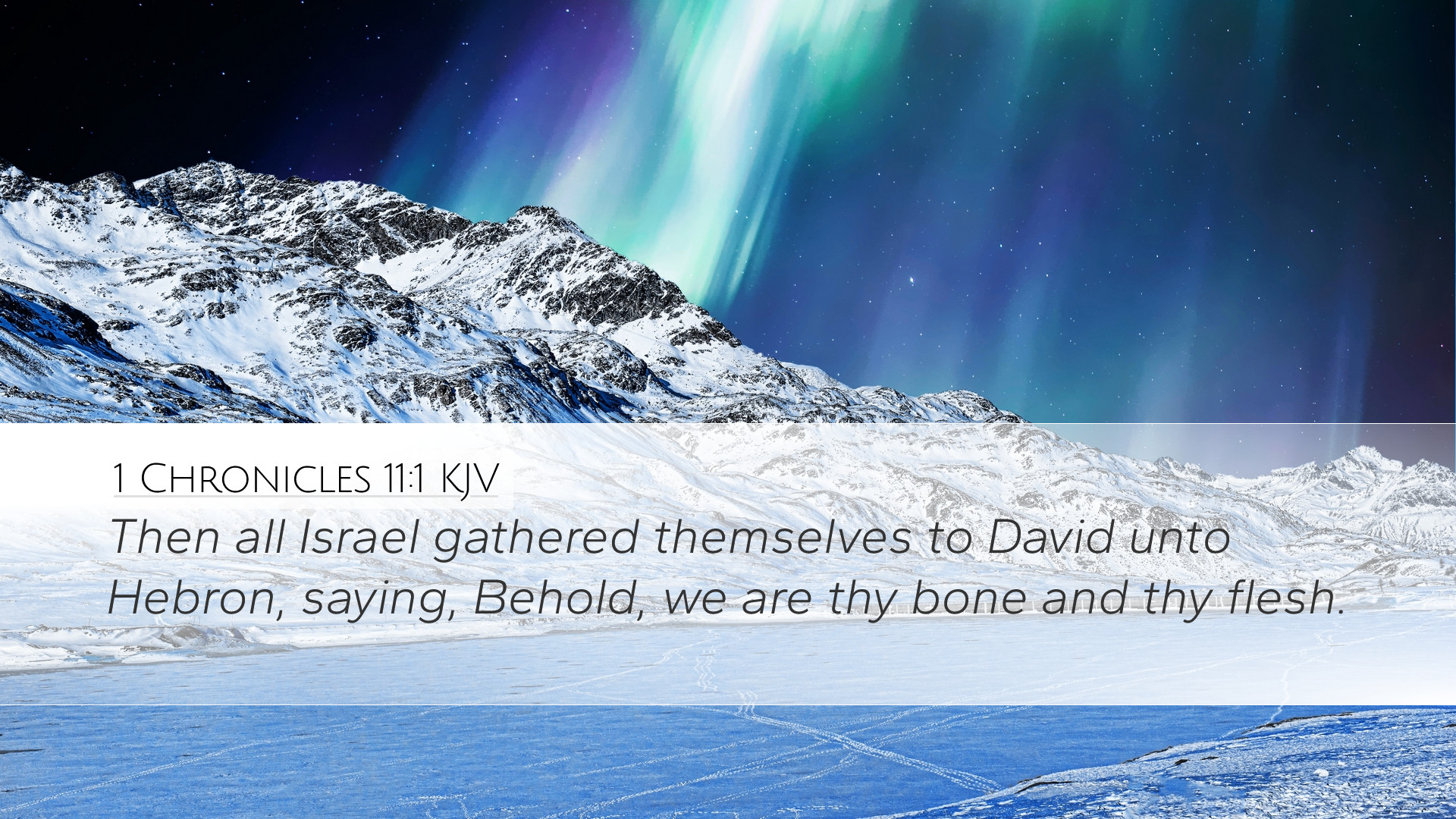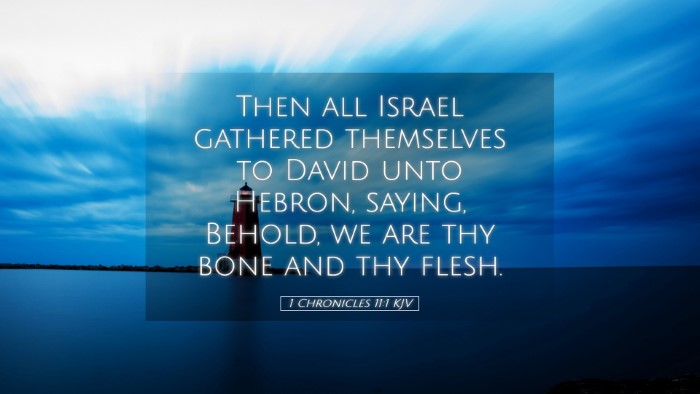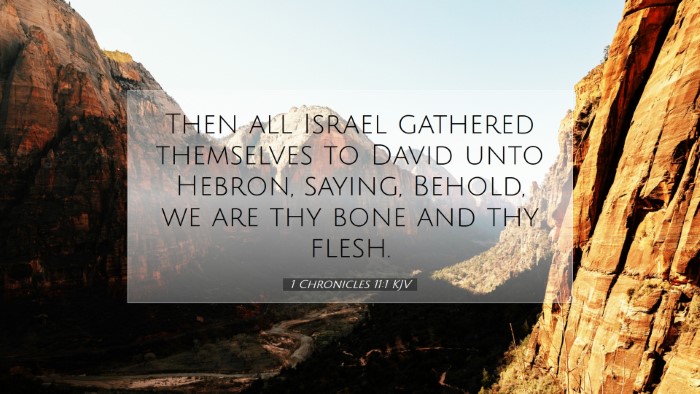Commentary on 1 Chronicles 11:1
Verse: "Then all Israel gathered themselves to David unto Hebron, saying, Behold, we are thy bone and thy flesh."
Introduction
The first chapter of Chronicles offers a comprehensive recount of the genealogies leading to the pivotal moment where David is anointed king over Israel. This anointing is no mere ceremonial position; it marks the culmination of Israel's desire for a divinely chosen leader. Matthew Henry describes this anointing as the sovereign act of God establishing a leader to unify the nation, reflecting a fulfillment of divine promise.
Gathering of Israel
In this verse, we witness a profound moment of unity among the tribes of Israel. Albert Barnes notes the significance of the phrase "all Israel," which indicates a collective acknowledgment of David's rightful position as king. The act of gathering at Hebron is symbolic, as it was a politically significant location, reinforcing the importance of unity under a single leader.
The Significance of Hebron
Hebron served not only as a historic city linked to Abraham and the patriarchs but also as a practical choice for David's kingship. Adam Clarke emphasizes that Hebron was central for the Judahite tribes and served as a strategic base for David's early reign. It became the place of the first anointing, creating a symbolic connection between David and the ancestral legacy of Israel.
“We are thy bone and thy flesh”
The declaration “we are thy bone and thy flesh” encapsulates the essence of kinship and solidarity. Matthew Henry articulates that this expression highlights the covenantal relationship not only among the tribes but also stresses the shared destiny of the people and their king. It signifies their recognition that David is part of them, belonging to their lineage, and reinforcing that he is appointed by God for leadership over them.
Covenant and Leadership
This acknowledgment might also be understood as the reaffirmation of their covenantal bonds, a theme prevalent in the Old Testament. Albert Barnes explains that their unity in declaring David "bone and flesh" was an important step in recognizing the divine order, whereby God had chosen David to shepherd His covenant people. The phrase conveys not just physiological relationship but the intertwining of their fates and destinies.
David’s Response to Unity
While the verse highlights the people's gathering and declaring their allegiance to David, it sets the stage for David's upcoming reign. His response to this unity showcases his leadership qualities that were anticipated by the people. Adam Clarke suggests that this moment emphasizes the necessity for a leader who would unify the tribes and lead them in battle, which David would ultimately do.
Theological Reflections
This verse holds deep theological significance that transcends its historical context. The anointing and subsequent allegiance to David can be seen as a typological foreshadowing of Christ’s reign as King. Matthew Henry draws parallels between David and Christ, indicating that just as Israel gathered to honor David, so too do believers today gather around Christ, recognizing Him as the fulfillment of God's salvific promise.
The Messianic Connection
The phrase “bone and flesh” resonates with the Christian understanding of Christ’s incarnation—where He became one of us to fulfill God’s redemptive plan. Albert Barnes notes that the relationship established here is foundational; it highlights the necessity of belonging and commitment in any leader-follower relationship, much like that seen in Christ and His Church.
Conclusion
1 Chronicles 11:1 serves as a vital text demonstrating the consolidation of leadership, the unity of tribes, and the acknowledgment of divine order. For pastors, students, theologians, and Bible scholars, this passage invites reflection on the nature of leadership within a faith context, the significance of unity among God’s people, and the foreshadowing of Christ’s kingship. Through the insights of Matthew Henry, Albert Barnes, and Adam Clarke, we understand the profound implications of these ancient words for contemporary faith practices and leadership dynamics.


